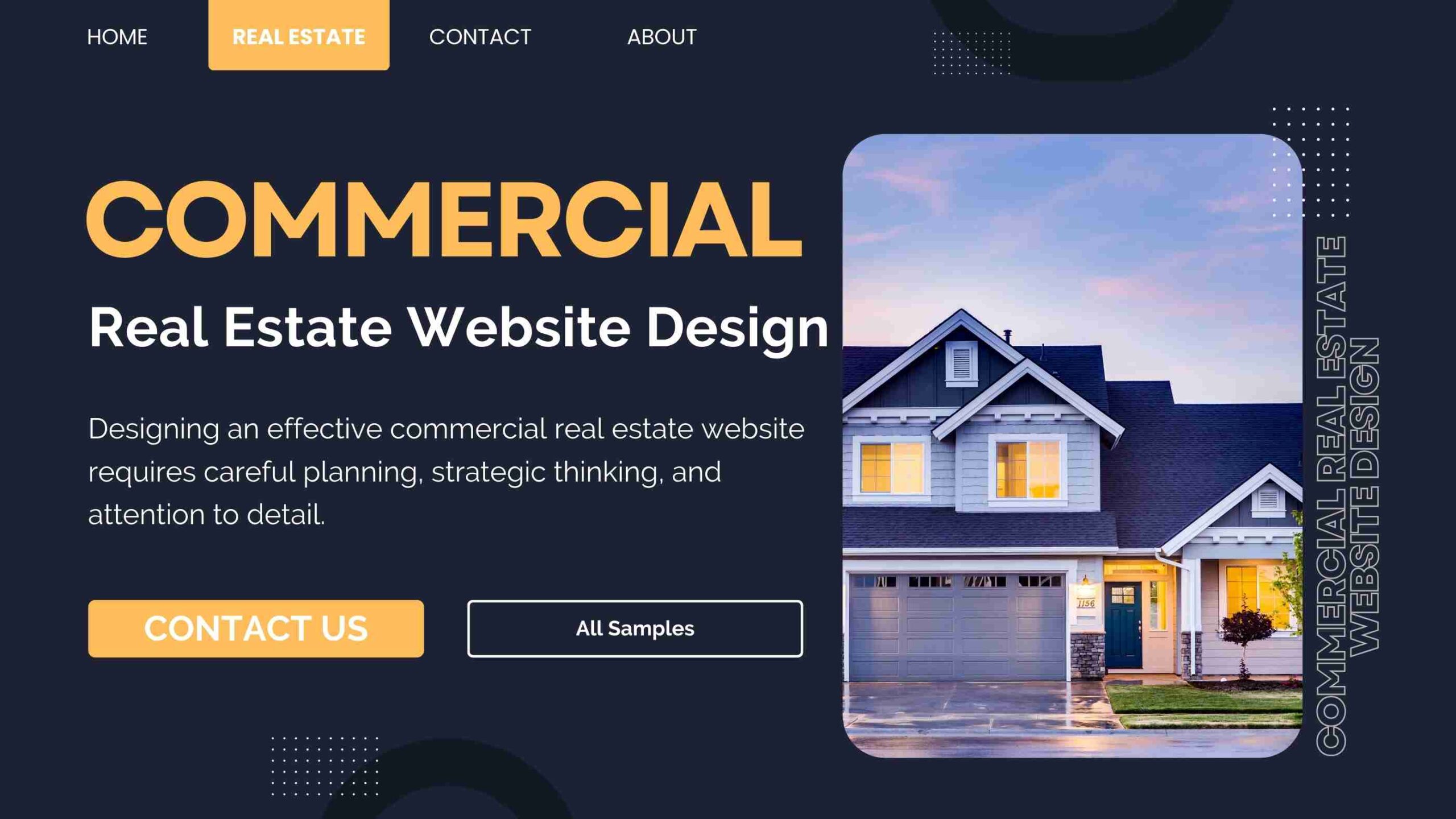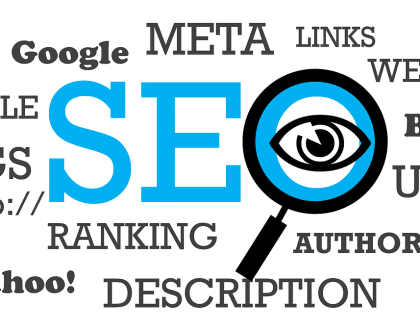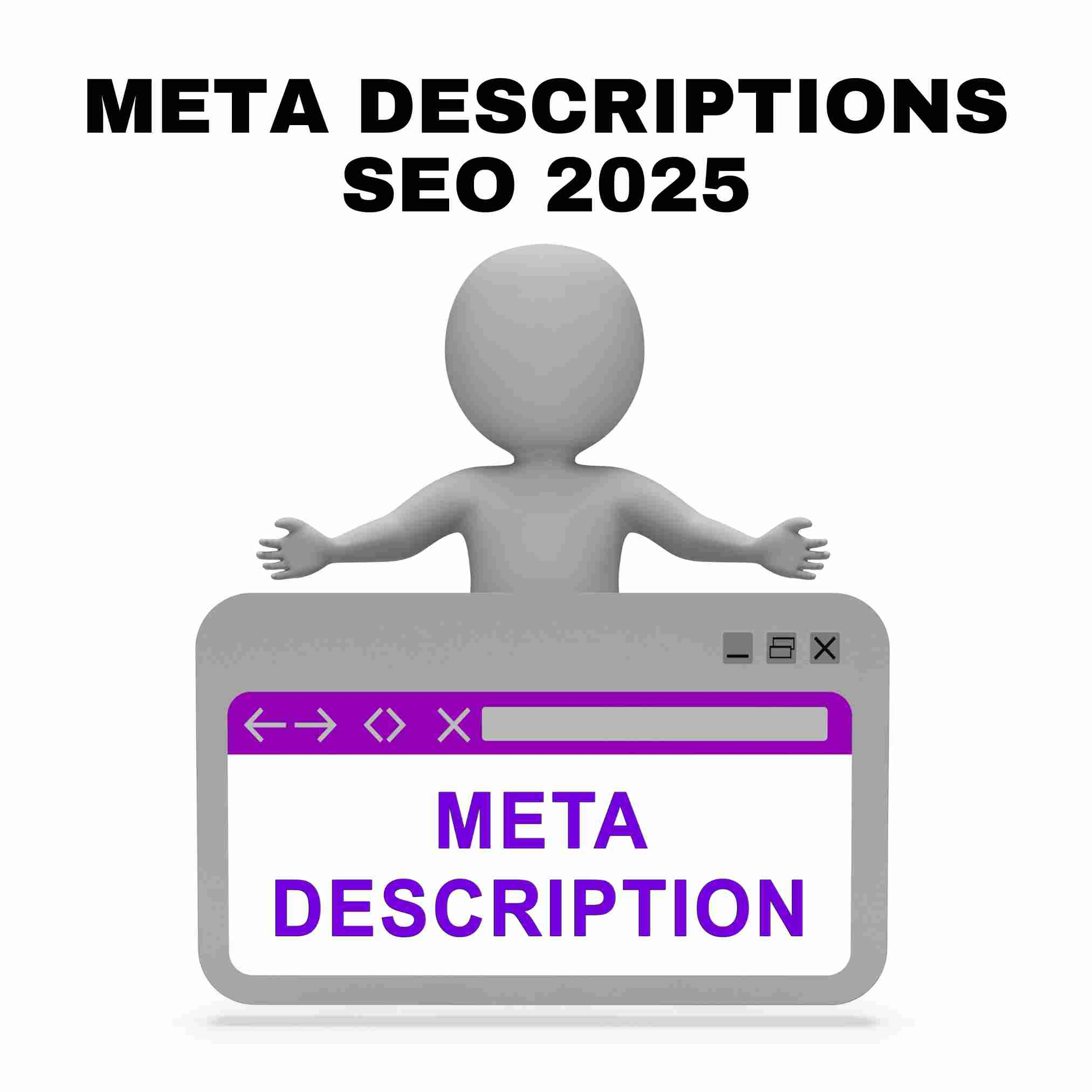Commercial Real Estate Website Design: A Comprehensive Guide

Commercial Real Estate Website Design – In today’s digital age, having a strong online presence is essential for businesses across all industries, including commercial real estate. A well-designed website serves as the virtual storefront for real estate companies, attracting potential clients, showcasing available properties, and establishing credibility in the competitive market. However, designing an effective commercial real estate website requires careful planning, strategic thinking, and attention to detail. In this comprehensive guide, we will explore the key components of successful commercial real estate website design, including strategies, best practices, and tips for achieving success.
Comprehensive Guide to Commercial Real Estate Website Design: Strategies, Best Practices, and Tips for Success
A. Understanding the Importance of Website Design in Commercial Real Estate
The design of a commercial real estate website plays a critical role in shaping the perception of a company and its properties. A poorly designed website can deter potential clients, diminish trust, and result in lost business opportunities. Conversely, a well-designed website can enhance credibility, improve user experience, and drive engagement and conversions. Here are some reasons why website design is crucial in the commercial real estate industry:
First Impressions Matter:
- In many cases, a website serves as the first point of contact between a potential client and a real estate company. A visually appealing and user-friendly website creates a positive first impression and encourages visitors to explore further.
Brand Identity and Credibility:
- A well-designed website reflects the professionalism and credibility of a real estate company. Consistent branding, high-quality imagery, and intuitive navigation instill confidence in visitors and reinforce the company’s brand identity.
Showcase Properties Effectively:
- The primary goal of a commercial real estate website is to showcase available properties and attract potential tenants or buyers. An effective website design highlights key features, amenities, and location details, making it easier for visitors to find relevant information and make informed decisions.
Lead Generation and Conversion:
- A well-optimized website can generate leads and facilitate conversions by incorporating clear calls-to-action, contact forms, and interactive features. By guiding visitors through the sales funnel, a well-designed website maximizes the chances of converting leads into clients.
Competitive Advantage:
- In a competitive market, a professionally designed website sets a real estate company apart from its competitors. By offering a superior user experience and valuable resources, such as property listings, market insights, and educational content, a website can attract and retain clients more effectively.
B. Strategies for Effective Commercial Real Estate Website Design
Designing a successful commercial real estate website requires a strategic approach that aligns with the goals and objectives of the business. Here are some key strategies to consider:
Define Your Target Audience:
- Before diving into the design process, it’s essential to understand the preferences, needs, and behaviors of your target audience. Are you targeting commercial property investors, tenants, or both? By defining your target audience, you can tailor the design and content of your website to resonate with their interests and motivations.
Focus on User Experience (UX):
- User experience is paramount in website design, especially in the commercial real estate industry, where visitors are often seeking specific information or properties. Invest in intuitive navigation, clear layout, and fast-loading pages to ensure a seamless browsing experience for your visitors. Incorporate user-friendly features such as search filters, interactive maps, and virtual tours to enhance engagement and satisfaction.
Prioritize Mobile Responsiveness:
- With the increasing use of smartphones and tablets, it’s essential to ensure that your website is fully responsive and optimized for mobile devices. A mobile-friendly design allows visitors to access your website on the go, regardless of their device or screen size, ensuring a consistent and enjoyable experience across all platforms.
Showcase High-Quality Imagery and Videos:
- Visual content plays a crucial role in showcasing commercial properties and capturing the attention of potential clients. Invest in professional photography, videography, and virtual tours to highlight the unique features and amenities of each property. High-quality imagery not only enhances the visual appeal of your website but also conveys trust and credibility to your audience.
Incorporate Interactive Features:
- Interactive features such as property search filters, mortgage calculators, and live chat support can enhance user engagement and provide valuable tools for visitors. By offering interactive features, you can empower visitors to explore properties, gather information, and make informed decisions, ultimately driving conversions and leads.
Optimize for Search Engines (SEO):
- To maximize the visibility and reach of your website, it’s essential to incorporate search engine optimization (SEO) best practices into your design and content strategy. Conduct keyword research to identify relevant search terms and incorporate them naturally into your website copy, meta tags, and image alt attributes. Focus on creating high-quality, informative content that addresses the needs and interests of your target audience, and optimize your website structure and navigation for easy crawling and indexing by search engines.
Leverage Social Proof and Testimonials:
- Testimonials, case studies, and client success stories are powerful forms of social proof that can enhance trust and credibility on your website. Incorporate testimonials from satisfied clients, showcase notable projects or transactions, and highlight any awards or recognition received by your company. By sharing positive experiences and feedback from past clients, you can inspire confidence and encourage prospective clients to take action.
C. Best Practices for Commercial Real Estate Website Design
In addition to strategic considerations, there are several best practices that can help ensure the success of your commercial real estate website design:
Keep it Clean and Professional:
- A cluttered or overly complex website can overwhelm visitors and detract from the user experience. Keep your design clean, professional, and visually appealing, with plenty of white space to enhance readability and focus attention on key elements. Use a consistent color scheme, typography, and branding elements throughout your website to reinforce your brand identity and create a cohesive look and feel.
Provide Clear Navigation:
- Navigation is a critical aspect of website design, especially for commercial real estate websites with extensive property listings and resources. Use clear and intuitive navigation menus, breadcrumbs, and internal links to help visitors find their way around your website easily. Organize your content into logical categories and subcategories, and consider implementing a search function to allow visitors to quickly locate specific properties or information.
Optimize Property Listings:
- The property listings are the heart of a commercial real estate website, so it’s essential to optimize them for maximum visibility and impact. Include high-quality photos, detailed descriptions, floor plans, and virtual tours for each property, along with relevant information such as location, size, amenities, and pricing. Use clear calls-to-action to encourage visitors to inquire about a property, schedule a viewing, or request more information.
Incorporate Contact Information Prominently:
- Make it easy for visitors to contact you by prominently displaying your contact information, including phone number, email address, and office location, on every page of your website. Consider incorporating a contact form or live chat feature to allow visitors to reach out to you directly from your website. Additionally, provide clear instructions on how to get in touch with your team and set expectations for response times.
Focus on Local SEO:
- Local search engine optimization (SEO) is crucial for commercial real estate websites, as many potential clients are searching for properties in specific locations or regions. Optimize your website for local search by including location-specific keywords in your content, meta tags, and URLs. Create dedicated landing pages for each geographic area you serve, and incorporate local landmarks, neighborhoods, and amenities into your property descriptions.
Implement Analytics and Tracking:
- To measure the performance of your website and identify areas for improvement, it’s essential to implement analytics and tracking tools. Use tools such as Google Analytics to monitor key metrics such as website traffic, user engagement, and conversion rates. Analyze user behavior and feedback to identify pain points, optimize your website structure and content, and refine your marketing strategies over time.
Stay Updated and Responsive:
- The commercial real estate market is constantly evolving, and your website should be able to adapt to changing trends and technologies. Regularly update your website with fresh content, new property listings, and relevant market insights to keep visitors engaged and informed. Stay responsive to inquiries and feedback from clients, and continuously seek ways to improve the user experience and meet the needs of your audience.
D. Tips for Success in Commercial Real Estate Website Design
In addition to strategies and best practices, here are some practical tips to help you succeed in designing a commercial real estate website:
Invest in Professional Design and Development:
- While there are many website builders and templates available, investing in professional design and development services can provide a higher level of customization, functionality, and scalability for your commercial real estate website. Hire experienced designers and developers who understand the unique requirements and challenges of the industry and can create a tailored solution that aligns with your business goals.
Showcase Your Unique Selling Proposition:
- What sets your real estate company apart from the competition? Whether it’s your expertise in a specific market segment, your commitment to exceptional customer service, or your extensive network of industry connections, make sure to highlight your unique selling proposition prominently on your website. Clearly communicate the value proposition of working with your company and why prospective clients should choose you over competitors.
Provide Valuable Resources and Information:
- In addition to property listings, offer valuable resources and information that demonstrate your expertise and provide value to your audience. This could include market reports, industry insights, investment guides, relocation tips, and FAQs. By positioning your website as a trusted source of information and expertise, you can attract and engage potential clients and build long-term relationships.
Foster Trust and Transparency:
- Transparency is key in the commercial real estate industry, where clients are making significant financial decisions. Be transparent about your processes, fees, and policies, and provide clear and honest communication throughout the client journey. Showcase your track record of success, client testimonials, and affiliations with reputable organizations to build trust and credibility with your audience.
Optimize for Speed and Performance:
- In today’s fast-paced digital world, visitors expect websites to load quickly and perform smoothly across all devices. Optimize your website for speed and performance by minimizing file sizes, leveraging caching and compression techniques, and optimizing server response times. Conduct regular performance audits and optimizations to ensure that your website remains fast and responsive over time.
Test and Iterate:
- Building a successful commercial real estate website is an ongoing process that requires testing, iteration, and refinement. Conduct user testing and gather feedback from clients and stakeholders to identify areas for improvement and optimization. A/B test different design elements, content strategies, and calls-to-action to determine what resonates most with your audience and drives the best results.
Conclusion: Commercial Real Estate Website Design
Designing an effective commercial real estate website requires careful planning, strategic thinking, and attention to detail. By understanding the importance of website design, implementing proven strategies and best practices, and following practical tips for success, you can create a compelling online presence that attracts clients, showcases properties, and drives business growth. With a well-designed website as your digital storefront, you can stand out in the competitive real estate market and position your company for long-term success.
Recommended Posts

Local SEO vs. Global SEO: A Comprehensive Guide
May 14, 2025



